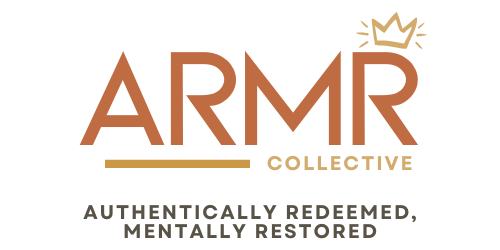“You haven’t confessed and repented to everyone you need to. This is what’s holding you back and keeping an open door for Satan in your spirit.”
I’m pretty sure my jaw dropped onto the floor after reading the above text on my phone (text has been modified to protect identities).
I received that text and many more like it over two months ago and realized today that I still have residual trauma surrounding repentance because of the toxic words. I still feel like I haven’t repented “enough” and that it was “too easy”.
The reality is repentance isn’t supposed to be an impossible and unobtainable prize placed impossibly out of reach. Matthew 11:30 says, “For my yoke is easy, and my burden is light“. True repentance leads to peace and freedom. This means repentance isn’t an elaborate religious performance or checklist of tasks, but a change of heart posture.
And it’s easier to do than you might think.
How My Repentance Was Weaponized Against Me
Before I experienced spiritual manipulation, these individuals actually helped me to recognize an area I needed freedom in. I had never admitted or spoken about it before, and they created a space where I felt safe enough to confide in them. They helped me with repentance; these are the steps I took:
1. Sin recognition:
I first had to recognize the sin itself. Sometimes it’s easy to overlook or minimize an ongoing sin. Acknowledging that it’s wrong and sinful is the very first step to repentance.
2. Genuine sorrow for the sin:
I was very ashamed and disappointed in myself. I did feel sorrow for what I had done, and I let myself feel it.
3. Confession:
I then confessed to God for it. I just prayed, “God, this is what I’ve been doing, and I am so sorry and ashamed. Please forgive me.”
4. Turning from the behavior:
Once I repented, I vowed to never do said sin again. I honestly had no desire to engage with the sin again, probably because of the shame and sorrow.
5. Turning to God:
If I did face temptation, I tried to talk to God about it and pray for Him to help me.
6. Bear fruit:
This is when I felt real freedom and peace about everything. The shame was gone, the compulsion was broken, and I genuinely felt clean before God. I felt free from this struggle for the first time.
The Peace That Proves It’s Real
Sometimes, you may want to repent at church; again this doesn’t have to be a huge spectacle. I merely went to the front with my husband during worship and asked for a member of the prayer team to pray for my repentance. Honestly, by this time, I felt so at peace about it.
Unfortunately, this is when things took a turn for the worse with these same people who had helped me. They used my repentance and sin as a weapon against me and my husband. I was vulnerable with them only to have it thrown back in our faces. They then started to tell us that I didn’t do “enough” and added extra requirements to my repentance. My husband and I pored over Scripture to try and find if what they were saying was biblically-backed.
It wasn’t.
(Read more about our full spiritual abuse experience here).
All this to say, repentance is between you, God, and those DIRECTLY affected. No. One. Else.
This follows the biblical pattern: private sins stay between you and God (1 John 1:9), sins against others include those affected (Matthew 5:23-24), and public sins may require community confession.
True vs False Repentance
How can we tell the difference between real and fake repentance? How do we know if we’ve properly repented?
What False Repentance Looks Like
False repentance requires human approval and validation. It never feels like it’s “enough”; there are always more hoops to jump through. Instead of bringing peace and freedom, false repentance creates a prison of shame and condemnation. This also creates a dependence on others who decide if you’ve “done it right”. They often add requirements that Scripture doesn’t impose, like tithing extra, confessing to people not involved, or volunteering extra hours at the church. False repentance is usually identified by the fear it invokes. Instead of repenting to change your heart posture and be free, you might be motivated by fear of punishment if you don’t repent “correctly”.
While writing and researching this post, I found that I get punishment and repentance confused with each other. I catch myself thinking that I didn’t repent enough since I feel so at peace about it. I almost try to punish myself for the sin I repented from so it feels like I repented “correctly”.
But true repentance is the opposite.
What True Biblical Repentance Looks Like
True repentance is between you, God, and anyone who might’ve been directly affected. It brings immediate peace and freedom and results in natural life change. You naturally won’t want to engage in the sin again, though there may be times of weakness or temptation. True repentance is evident through heart transformation. It’s also motivated by love and gratitude for grace, not fear of punishment. While reflecting on my own repentance before writing this, I was floored by the concept of repentance because there’s literally no catch. We just confess our sins to God, and He forgives us. He doesn’t require us to “make it up to Him”. His Grace and salvation cancels out our sins just like that.
Repentance and faith are inseparable. Christ’s righteousness covers our imperfect repentance.
Perfect repentance isn’t required—if it was, no one would be saved.
Romans 8:1 reminds us there is “no condemnation for those who are in Christ Jesus.”
Answering the Hard Questions
Now let’s address some common concerns people have about their own repentance:
How do I know if I’ve really repented?
There’s a few tests you can use to find out if you’ve really repented or not. The first is freedom vs anxiety. Do you now feel free or more anxious after repenting? Are you experiencing natural change or feel like you’re white-knuckling through trials? Are you drawing closer to God or hiding? Like I touched on earlier, I catch myself wondering if I’ve “done enough”, but this is trauma speaking, not spiritual reality. If you’ve followed the six step process highlighted earlier, and you did it with a genuine heart, it was real. Look to 1 John 1:9, “If we confess our sins, he is faithful and just to forgive us our sins and to cleanse us from all unrighteousness.“
Why does biblical repentance feel “too easy”?
It’s easy to try and compensate for past sins with works and religious performance. Especially if you’ve experienced spiritual abuse similar to what we experienced. But the truth is biblical repentance is supposed to feel “easier” than religious performance. It might feel “too easy” because we’ve been taught forgiveness requires ongoing punishment.
But the reality is, the cross did the hard work—our part is receiving.
What if you do the sin again?
This is what I wonder myself every now and then. If I do the sin again, does that mean my repentance wasn’t real?
This is how I think of it: repentance is a singular event where you have a significant heart change and turn from sin and to God. If the sin happens again, it doesn’t invalidate your repentance or mean it wasn’t real. This is where confession comes into the picture. Confession is the ongoing “maintenance” after repentance. If the sin occurs again, we confess it to God and acknowledge it happened again. There’s no need to re-repent—we just need to get back on track with God.
Repentance is a heart transplant. Confession is the follow up appointments.
Healing from Repentance Trauma
How do you know if you were spiritually abused or manipulated about repentance? Maybe they questioned your sincerity after your biblical repentance. Or they added extra requirements not found in the Bible or used your vulnerability as ammunition later. Maybe they made grace feel “too easy” or suspicious. Or maybe they demanded ongoing punishment as “proof” of your repentance. They may have positioned themselves as necessary for your forgiveness.
If you’ve experienced any of this, firstly, I’m sorry. This isn’t how Christianity is supposed to be. Your confusion about repentance was normal; manipulation is designed to confuse and isolate. God’s voice brings peace, not ongoing condemnation. You can hear directly from God about your spiritual condition regardless of what others may have “heard” from God. When the enemy tries to whisper in your ear that it wasn’t enough, declare God’s grace and your salvation. Part of healing from repentance trauma often involves the ongoing journey of forgiving those who manipulated your vulnerability, a daily choice that brings freedom.
The enemy’s strategy is to make you doubt God’s complete forgiveness and grace. Sometimes when you genuinely repent from a sin, you realize there are deeper lies or patterns underneath that the enemy has been using to keep you trapped.
But you are standing in the freedom and victory Christ already gave you.
Declaration of Freedom
Here’s what I want you to know: if you’ve genuinely turned to God, you are forgiven—period. This truth is slowly healing my own repentance trauma. I’m learning that God’s grace really is “too good to be true” by human standards, and that’s exactly what makes it divine.
Take a moment today to ask God directly how He sees your heart. His voice brings peace, not performance anxiety. Learning to trust God’s voice again after spiritual manipulation takes time, but He’s patient with our healing process.
Join me next week as we explore how to break free from the deeper lies that sometimes emerge after repentance, the strongholds that keep us from fully walking in the freedom Christ gave us.
And remember, you don’t need anyone’s permission to receive God’s divine forgiveness.



